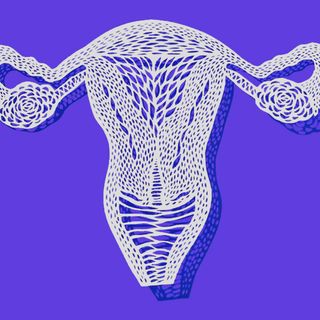
Genetic Schizophrenia Risk Declines When the Mother’s Pregnancy Is Healthy
The in utero environment can make some risk genes more or less risky.

Previous research has shown genome evidence linking high risks of schizophrenia in an individual to their prenatal environment during their mother’s pregnancy. However, according to this new schizophrenia study, upon analyzing the 108 regions of genome that have been previously linked to high risks of schizophrenia during pregnancy, it was found that there is only a slight risk if mothers experience no complications during their pregnancy. However, when complications do arise, the risk of the baby eventually developing schizophrenia increases twelve-fold.
When taking both prenatal conditions as well as risky schizophrenia genes into consideration, evaluating the chances of risk change drastically from a 12 in 1000 odds when no complications in pregnancy occur, to 80 in 1000 if they do.
“This should be an eye-opening study, especially for anyone who thinks disease risk is all genetic,” Janine LaSalle, of the University of California, Davis, who studies the genetics of autism and was not involved in the schizophrenia research told STAT News. “Genes don’t exist in a lock-box away from everything else that happens to you.”
The study, published in Nature Medicine, finds that activation of risk genes depends on the environment they find themselves in. In the case of schizophrenia, the placenta plays the vital role of deciding factor when it comes to either aggravating risks of schizophrenia or rendering the genes non-functional.
The team came to this conclusion after rigorously studying the 108 genes associated with schizophrenia. Looking at thousands of healthy peoples as well as people with schizophrenia, the researchers found higher risks of schizophrenia only when in utero complications like mother’s diabetes, obesity, pre-eclampsia, or smoking were also present.
So a fetus with schizophrenia risk genes would have a 800% risk with any of the above conditions, but a 50% risk if the pregnancy was a normal one.
The study also found that the 108 high risk genes were found in higher levels in the placentas of male fetuses as compared to female one. This correlates with the fact that more men than women develop schizophrenia especially in young adulthood.
A stressful, complicated pregnancy “reflects the placenta’s response to stress,” Dr. Daniel Weinberger of John Hopkins University told STAT News, “it turns on genes related to immune response.” Recent studies have linked schizophrenia to the immune system.
While there is no detailed understanding of how placenta health and immune state affect the brain health of the baby, there is strong evidence that points towards it. For children whose mothers had a respiratory infection during pregnancy, the odds of developing schizophrenia are three to seven times higher, as respiratory infections are known to cause inflammation in the placenta. The risk is twice as great when mothers have had pre-eclampsia, a difficult delivery, or diabetes, obesity, alcohol use, vaginal bleeding, maternal smoking, or preterm birth, which are also known to affect placenta.
“We need to create a new risk score for schizophrenia, incorporating not only genes but also placental health,” adds Weinberger. “The odds of becoming schizophrenic based on your polygenic risk score is more than 10 times greater with these early-life complications than without them.” And in uncomplicated pregnancies, the risk is less than 2%.
“[I]f you don’t have the environmental risk you don’t have the genetic risk,” explains UC Davis’s LaSalle, who studies the expression of autism-related genes in the placenta, also thinks it important to include the environment in genetic risk scores.
Angelina Shah is a staff writer with The Swaddle. In her previous life she was a copywriter in advertising. She has a penchant for reading, singing, travelling and being obsessed with superheroes.
Related


Women Are Finding Their Own Ways to Manage PCOS
